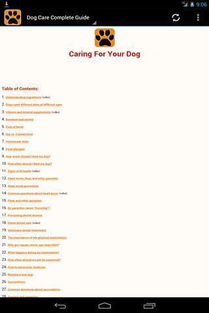Understanding Dog Cystotomy Post-Op Care

After your dog has undergone a cystotomy, which is a surgical procedure to remove a bladder stone or cyst, it is crucial to provide proper post-operative care. This article will guide you through the essential steps to ensure your furry friend recovers smoothly and comfortably.
Monitoring Your Dog’s Vital Signs

Keep a close eye on your dog’s vital signs, including heart rate, respiratory rate, and temperature. These can be indicators of how well your pet is recovering. If you notice any abnormalities, such as a rapid heart rate or difficulty breathing, contact your veterinarian immediately.
| Vital Sign | Normal Range | What to Look For |
|---|---|---|
| Heart Rate | 60-160 beats per minute | Rapid or irregular heart rate |
| Respiratory Rate | 12-30 breaths per minute | Difficulty breathing or rapid breathing |
| Temperature | 100.5-102.5掳F (38-39.7掳C) | High or low temperature |
Administering Medications

Your veterinarian will prescribe medications to help manage pain and prevent infection. It is essential to follow the prescribed dosage and schedule. If you notice any adverse reactions, such as vomiting or diarrhea, contact your veterinarian.
Feeding and Hydration
After surgery, your dog may have a decreased appetite. Offer small, soft meals and encourage drinking. Ensure your pet has access to fresh water at all times. If your dog refuses to eat or drink, contact your veterinarian.
Exercise and Rest
Limit your dog’s activity for the first few days after surgery. Encourage rest and avoid any strenuous exercise. Gradually increase activity as your pet recovers, but avoid jumping or running until your veterinarian gives the okay.
Cleaning and Grooming
Keep the surgical site clean and dry. Gently clean the area with a mild soap and water as needed. Avoid allowing your dog to lick or chew at the incision site. If you notice any signs of infection, such as redness, swelling, or discharge, contact your veterinarian.
Follow-Up Appointments
Attend all follow-up appointments with your veterinarian. These appointments are crucial for monitoring your dog’s recovery and ensuring the incision site is healing properly. Your veterinarian may also perform additional tests or adjust medications as needed.
Preventing Future Stones
Work with your veterinarian to develop a diet and treatment plan to prevent future bladder stones. This may include special food, supplements, or medication. Regular monitoring of your dog’s urine can help detect any potential issues early.
Conclusion
Proper post-operative care is essential for your dog’s recovery after a cystotomy. By monitoring vital signs, administering medications, ensuring proper feeding and hydration, limiting activity, and maintaining cleanliness, you can help your furry friend heal quickly and comfortably. Always consult with your veterinarian for personalized advice and guidance throughout the recovery process.
